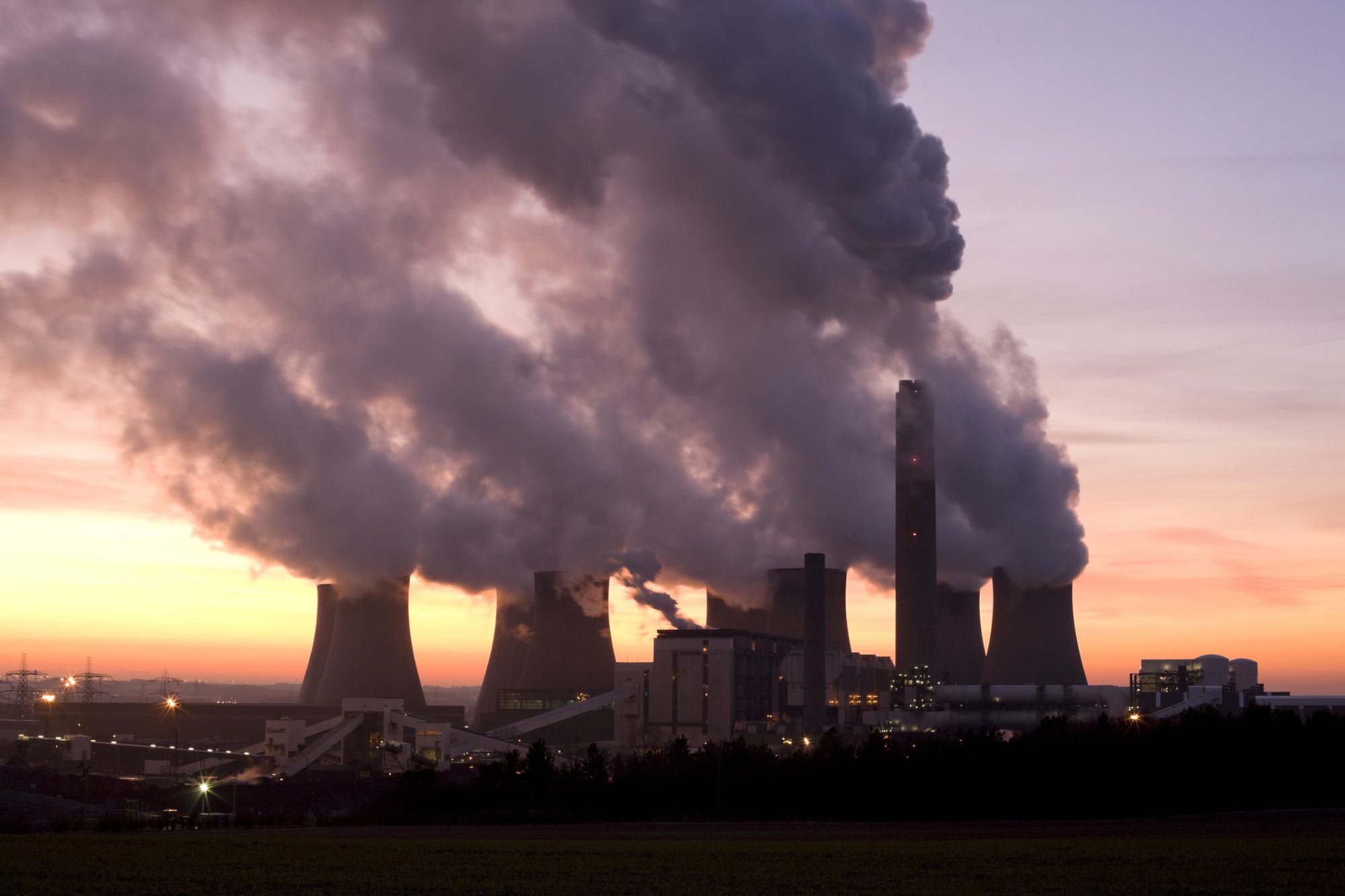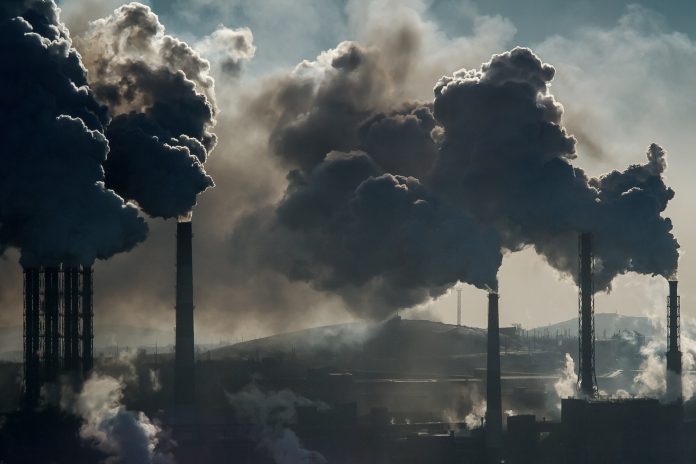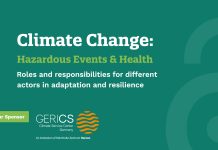With air pollution causing 7 million premature deaths annually, what is being done to protect the global population from the lack of clean air?
September 7th is International Clean Air Day; an international effort to improve air quality is needed to protect both human health and our world’s climate.
Case study on air pollution and quality of life
Every morning, Dorcas makes her way to her stall in Accra’s outdoor Makola market through surrounding streets congested with lorries, cars and trotros.
As in many low- to middle-income countries, street vendors are an essential part of the urban economy, as is the polluting transport provided by ageing, used vehicles imported from countries where drivers have switched to cleaner vehicles.
These toxic traffic fumes seep into Dorcas’ lungs, a silent, insidious menace. A menace not only to her health but also to her life, increasing the risks of lung cancer and cardiovascular and respiratory diseases.
There are many such stories, and while they may sound melodramatic, they are playing out in countless neighbourhoods, workplaces and homes across the globe, starkly illuminating the harsh reality of outdoor air pollution.
The air we breathe is potentially carcinogenic
Air pollution is not limited to developing countries or densely populated cities. In fact, whether we live in Accra or Zagreb, in rural or urban areas, the air we breathe is potentially carcinogenic.
99% of the world’s population breathes unhealthy air
Consider the data: The World Health Organization (WHO) estimates that 99% of the world’s population breathes unhealthy air and that seven million premature deaths occur annually due to air pollution, including as many as 29% of all lung cancer deaths.
The global cost of health damages associated with exposure to air pollution is estimated at USD 8.1 trillion, equivalent to 6.1% of global GDP, according to the World Bank.
A lack of clean air and rising cancer risks
Meanwhile, a 2022 study by the Francis Crick Institute and University College London revealed the chilling reality of how exposure to airborne particulate matter can trigger lung cancer even in non-smokers.
The research found that exposure to small particles (PM2.5) in the air promotes the growth of cells in the lungs, which carry cancer-causing mutations.
Examining data from over 400,000 people, the scientists also found higher rates of other types of cancer in areas with high levels of PM2.5. This is a critical concern, amplifying cancer-related mortality alongside other hazards such as tobacco use.
Why is air pollution such a critical, even existential issue?
It’s the toxic cocktail of particles, chemicals and heavy metals that infiltrate our lungs and enter our bloodstream, causing severe health risks, including cancer, stroke, heart attack, respiratory diseases, and even impacts our brains, such as accelerating dementia.
Emissions from burning fossil fuels, for example, in petrol and diesel vehicles, waste incineration, industrial operations, and agriculture generate these pollutants.
Most importantly, we are all exposed – all eight billion of us on this planet – with varying degrees of risk.
Exposure to air pollution limits our ability to engage in physical activity and lead healthier lives
This exposure to air pollution limits our ability to engage in physical activity and lead healthier lives, which further increases the risk of developing many non-communicable diseases, including heart conditions and cancer.
Fighting for clean technologies and clean air
There has been progress in countries where clean technologies and effective regulations have dramatically reduced pollution levels, with the Clean Air Act of 1952 in the UK, the work of the Environmental Protection Agency in the US and the Chinese ‘war against air pollution’ started in 2014, for example, offering tangible examples of change and adaptation.
Currently, the European Union is considering strengthening its air quality legislation, which would improve the health of half a billion people.
So much more needs to be done, however, in so many regions around the world that are still significantly affected. A recent report noted that several cities even in countries which have seen progress – such as Detroit, Michigan in the US and Toronto in Canada – are again struggling to control air pollution.

Low- and middle-income countries are taking the biggest hit
But the situation is particularly pressing in low- and middle-income countries, which account for 91% of premature deaths related to air pollution.
It is a complex problem and the solutions are necessarily multifaceted. However, there are clear, practical actions that can be taken by national and city governments. Transitioning to cleaner energy sources is more feasible than ever, with prices plummeting compared to oil and gas and innovations rising.
Cities can adopt green urban planning strategies, from pedestrian-friendly areas, low-emissions public transport and bike lanes to increasing tree cover and green spaces to limit traffic, reduce temperatures and absorb pollutants.
Such actions will not only improve the quality of the air people breathe, it will also encourage more active lifestyles that will further reduce the risks of people developing cancer and other diseases.
Copenhagen and Amsterdam are prime examples of cities that have transformed into havens for cyclists, significantly reducing their carbon footprint. Outside HICs, Hangzhou in China and Casablanca in Morocco are among the most bike-friendly cities in the world.
We need clean air innovations on a global scale
The call for cleaner air is not just about getting rid of a silent killer – it is a pursuit of social equity and justice, the vision of a world where our children can breathe easy. The burden of cancer and other diseases resulting from air pollution is not a problem for future generations to solve; it’s our problem today.
UICC and Clean Air Fund join other organisations working to reduce the burden of non-communicable diseases around the world, to urge governments, policymakers and citizens to recognize the significant health benefits that derive from measures taken to improve the quality of the air we breathe.
A collective, resolute stand against air pollution
We call for a collective, resolute stand against air pollution for the sake of both people and planet: a decisive curb on emissions, a phase-out of fossil fuels, and a strong push for cleaner transport and an end to waste burning, particularly in lower-income countries.
The air we breathe should nurture life, not threaten it.
This piece was written and provided by Jane Burston, Founder and CEO of the Clean Air Fund and Dr Cary Adams, CEO of the Union for International Cancer Control.











